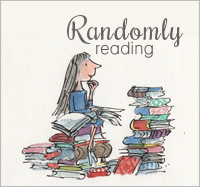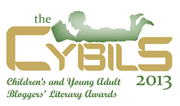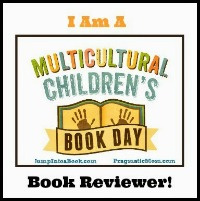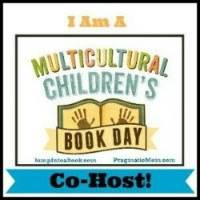The Lunar New Year lasts for 15 days, and technically, it ended on February 11th this year, with the first full moon and the traditional Lantern Festival. We were still reading and enjoying Grace Lin's book The Year of the Dog, her first Pacy Lin novel, on the last day of the New Year, but it is just too good not to write about - better late than never.
The Year of the Dog has arrived and the Lins - Pacy, her mom and dad, her older sister Lissy and younger sister Ki-Ki - are celebrating with all the traditional customs and foods. In the Year of the Dog, Pacy learns, you are supposed to find your best friends, as well as yourself and what you want to do with your life.
Pacy isn't sure what finding yourself means for her, though. She knows she's Chinese, but her parents are Taiwanese and she doesn't speak either language, but her mom and dad do. She was born in the US, so she's also American, and at school she is called by her American name, Grace. But, to Americans, she is too Chinese, and to Chinese people, she is too American. Will Pacy really be able to find herself in the Year of the Dog?
So far, Pacy has been the only Chinese student at school, besides her sister. But, the day after celebrating the New Year, Pacy returns to school and discovers that there is a new Chinese girl named Melody, who is also Taiwanese American. The two girls become instant best friends.
As the Year of the Dog goes by, Pacy experiences many things, some are traditionally Chinese, others very American. First, there is the family's trip to New Jersey to celebrate Pacy's new born cousin Albert's Red Egg party, in which eggs are dyed red and brought to the baby for luck, along with red envelopes full of money.
Then, at school, the students are given an assignment to write and illustrate a book of their own as part of a national contest. Pacy is excited at first, but soon realizes she can't think anything to write and illustrate that interests her. Later in the year, Melody and Pacy decide to participate in the Science Fair, which doesn't go exactly as planned. Pacy is also excited when the teacher announces that the class play will be The Wizard of Oz. Hoping to get the part of Dorothy, her enthusiasm is spoiled when her friend Becky tells her that she can't be Dorothy, because Dorothy's not Chinese.
By the end of the school year, Pacy has finally come up with an idea for her book project, and then school is over, and summer arrives. Melody and her family are going to spend a week at TAC camp, a camp for Taiwanese Americans, and Mrs. Lin decides it would be good for her family to go as well. Pacy is signed up for an art class, but she isn't very welcomed by the other girls in the class who speak Chinese and call her a Twinkie (yellow on the outside, but white on the inside).
The fall goes by, with very funny and touching descriptions of the Lins celebrating Thanksgiving and Christmas. The Lin children want these holidays to be celebrated traditionally, but their parents keep wanting to celebrate in a Chinese way. I thought this touching because I think everyone in the US puts their own cultural spin on these holidays. I know my family did (American southern and Welsh), and I know the families of my friend's did the same thing.
So when Chinese New Year comes around again and the Year of the Dog come to an end and the Year of the Pig is welcomed in, we know Pacy has found a new friend, has spent time with her family, including her grandparents from Taiwan, but has she succeeded in finding herself and what she wants to do with her life?
In her afterward, Grace Lin writes the she wrote The Year of the Dog because it was the book she wished she had when she was growing Asian in a Caucasian community, not because she had been a miserable and gloomy life, but because it was different and she wanted to express the difference in an real and upbeat way. Which is why some of the vignettes in the book don't come to a neat conclusion - after, all sometimes life doesn't either.
But what Lin does do is address issues that do impact children who are not white but life in a white community. For example, when Pacy is told she can't be Dorothy in the play. Cast as a munchkin, she is given the job of handing a gift to Dorothy, and worries that being in the spotlight for a few seconds will be a problem for the audience.
Lin has included lots of information about what life is like in a Chinese American family. I loved the annual trip to NYC's Chinatown to buy Chinese groceries for the year. I also love shopping in Chinatown, though I only buy what I can carry on the subway.
Lin tells Pacy's story simply and directly. It is narrated from Pacy point of view in the first person, but alternates with anecdotes, or really real life lessons, told by her mother from her childhood in Taiwan. Lin also gives detailed descriptions of the food that the family eats, and now that I am more familiar with real Chinese food, thanks to my Kiddo and her husband who comes from China, I could really appreciate these mouth-watering details.
I also really liked that Pacy's family in loving and intact. There is no one major problem that must be dealt with, both mom and dad are present and aware of their children's lives, and they do lots of things together as a family and with other families. All that makes The Year of the Dog an endearing, often humorous work that I think young readers will most definitely enjoy.
Grace Lin has posted some great activities for readers of The Year of the Dog HERE
This book is recommended for readers age 7+
This book was borrowed from the NYPL



































No comments:
Post a Comment